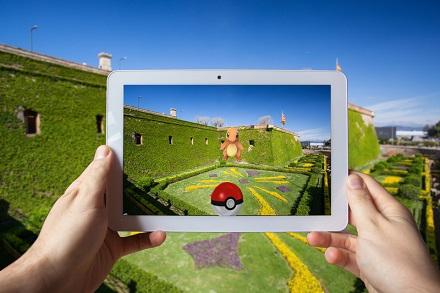

If you thought Pokémon Go was dead, it’s time to prepare for the Second Coming of Pikachu. The augmented reality app that was the hot trend in the summer of 2016 is not only still around but it’s generating economic impact – and the live events it hosts are still packing them in.
And for those who said it was down and out, there is a strong contingent ready to argue that point.
The game already has some strong statistics, including the following:
- Most revenue grossed by a mobile game in its first month ($206.5 million in first month)
- Most downloaded mobile game in its first month (130 million downloads)
- Most countries in which mobile game was simultaneously ranked the most downloaded app (was #1 in 70 countries)
- Most countries in which mobile game was simultaneously ranked the highest grossing app (was #1 in 55 countries)
- Fastest mobile game to gross $100 million (it took only 20 days)
As with any craze, though, Pokémon Go (or PoGo, as its enthusiasts call it) went through a course correction. Following its rapid ascent, the game’s paying user base dropped 79 percent, leading plenty to label it as dead.
Players, however, disagreed. There are still plenty of them, as evidenced by the recent strong attendance and spending at the 2019 Pokémon World Championships, held at the Walter E. Washington Convention Center in Washington, DC.
At the annual world championships, held in a different city each year, approximately 1,500 players, some as young as five years old, from nearly 50 countries, competed in the card- and video-game championships for a combined $500,000 in prize money. To qualify, hundreds of thousands of players had to battle it out in various regional competitions. Matches were broadcast on Twitch as well as live streamed.
Next year, the event moves to England, where London will be hosting. The championships include competitive tournaments in the main video game series (2020 will be the first to use Sword and Shield), the Trading Card Game, Pokken Tournament and PoGo (which had its first invitational in 2019). Dates have not been announced but the event has been held in August each year since 2004, and the 2019 event happened Aug. 16-19.
The convention center in D.C. saw a little below 10,000 people come through its doors during the weekend event and vendors sold everything from food to tech accessories to souvenirs.
That’s not to say more events aren’t welcome. PoGo tournaments continue to proliferate, with templates available to destinations and event owners who want to host.
And players are spending. One economic impact study, done at the game’s initial release, used Occoquan, Virginia, as a microcosm. Based on 100 new people visiting downtown Occoquan per day and playing PoGo, and spending an average of $5 per visit, came out equal to $182,500 in new spending per year at local businesses.
It wasn’t the first application of PoGo to economics, either. In fact, a fairly recent dissertation showed the way the game could be used to teach principles of economics to students in a relatable way.

